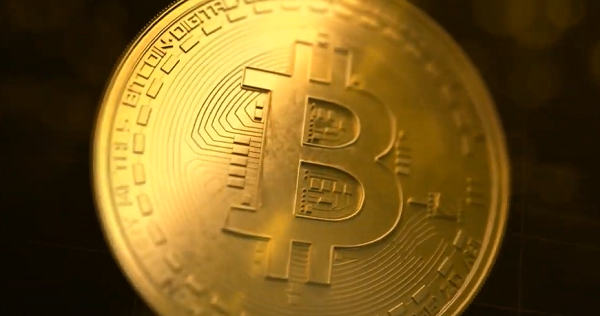
As the dizzying heights and the monumental lows of ceaseless technocratic development threaten to bury time-tested analog mechanisms under petabytes of decadent software engines, the era of the programmer is no stranger to instances of biting irony. The age of intricately crafted code producing a wealth of oxymorons, feeds off the reckless and inane co-dependent toxic relationship between the individual and the smartphone. Finding humor and perspective among the orgy of wasted bandwidth and teeth grinding madness of passive group think is about the only method available in keeping a level head, as the world slips away. Inevitability only speaks to those blinded by cynicism, or says the generation impervious to the potent intoxicant of online addiction.
-A collision with a self-driving vehicle kills a pedestrian in the Phoenix area last year. Reports from the investigation indicate that the driver had time to make a correction and avoid the crash, but was allegedly not paying attention to road and the chief culprit is most likely her phone. Are representatives from Google and Uber not aware of horrific science fiction plots where computer systems and vehicles attain consciousness and destroy humankind? Or maybe human nature fueled by the current epidemic of enabling is a more immediate concern.

It’s Just One More Day In The California Legislative Session.
As the tech culture has attempted to justify the incident as something along the lines of individuals make sacrifices for the greater good or some similar contrived notion indicating the presence of a martyr, reasonable folks cringe and mutter sarcastically, “nothing can go wrong here.”
Segueing from the pratfalls of sentient technologies to cryptocurrencies, the Bitcoin rush has officially subsided and in the nuclear winter aftermath of the hysteria a couple of haphazard truths have been established. Other than the willful investors pouring billions of dollars into the marketplace after falling under the spell of innumerable YouTube streaming testimonials claiming instant financial fortunes, rogue governments, criminal syndicates, and the dark web have found the perfect method to launder dirty money in circumnavigating the legitimate banking system. Pesos, rubles, yuan, and counterfeit lottery tickets can be washed into dollars without fear of legal reprisal. On the Fortune 500 front, the hope of Amazon, Starbucks and other corporate entities embracing the digital monetary system have fizzled out, as individuals and groups with a stake in the game have absolutely no guarantees or protections, a testament to the precarious and nightmarish dearth of security which plagues the cyberwallets or the lucrative collection financial catchment for account holders in the absence of banks and regulatory policy. If the chaotic system dominated by dangerous elements is not enough to deter future growth, the pending logistical conundrum in individuals misplacing the security key on their accounts, or succumbing to an untimely demise is an issue that has made the global headlines.
In the most recent public relations nightmare befalling the cryptocurrency realm, the CEO of a nearly $200 million dollar digital exchange, passed away unexpectedly, leaving clients in the worst possible fiscal pickle reports ABC news. Multiple attempts at recovering passwords directly linked to the funds housed at the exchange have been resoundingly unsuccessful, and the money is currently frozen. In a glaring and deplorable oversight unique to the digital age, 30-year-old Gerald Cotten, head of the most prolific cryptocurrency fund in Canada, QuadrigaCX, apparently failed to alert his spouse or co-workers of crucial security information allowing access to the firm’s Bitcoin inventory, before unexpectedly succumbing to illness while travelling abroad, leaving 115,000 investors in limbo. As the tendrils of a possible scandal extend from the base concept of fraud, Cotten’s widow and business partner claims that only instance of the holy grail of passwords for the exchange is somewhere hidden beneath layers of complex encryption and security software on her late husband’s laptop, which colleagues and security experts have been unable to crack.
–In 2018, retail galaxy Amazon announced plans to test shipping services in London with a true personal touch, giving access to the customer’s home in order to guarantee the successful delivery of the package. As critics scoff at the arrogance and munificent boneheadedness of the project, the company has come under heavy scrutiny as to the policy and effectiveness of the screening process, in guaranteeing that criminals do no not infiltrate the project. Common sense and street smarts are definitely at a premium in the middle management ranks of the Seattle corporate headquarters, as the organized crime brass in the UK is salivating at the pending opportunities if the service is launched countrywide. No break-ins. No one is home. No problem!
Cryptocurrency pioneers initially sold their idea to the a group of investors in heavily emphasizing iron clad security and deregulation parroting to the free market founding principles of the internet. What the entrepreneurs failed to reveal, were the complexities of the Bitcoin mining process and the aversion of large scale retailers in taking a huge risk when attempting to integrate feasible payment technologies at storefront and online checkout areas. As Bitocoins are generated in direct proportion to the frequency of digital transactions recorded and validated between cyberwallets, the severely limited presence in stores and the service industry is indicative that the technology is either years away from being relevant to the average consumer if at all, or simply one of the grandest Ponzi schemes in history.
The infuriating and tedious compartments of Bitcoin security, play a major role in the volatility and waning confidence of the digital monetary unit, as some of the protocol remain brilliant. The rigorous code for each 64 character hash comprising each line of transaction was originally developed by the NSA and is virtually impenetrable. The weak link of the system is in the aforementioned cyberwallet, as the human element faces the human element. In the case of Cotten, a misplaced password is not uncommon and it is estimated that over 4 million Bitcoins have been lost forever in the ether of the electronic universe, due to the enigma of an individual unable to recall a security code and combined with the high functioning performance of encryption processes. While members of the QuadrigaCX face a losing battle in retrieving their fortunes, the insidious software hacking community has been unofficially beckoned in meticulously liquidating the administrator cyberwallet account of Cotten, a bold endeavor that lay within the territory of the possible. In September of last year, a gang of highly competent pirate programmers managed to orchestrate an attack on Japanese Bitcoin Zaif. Within a matter of nanoseconds after the criminal software routine was initiated, $60 million vanished into untraceable channels.
–As the hysteria from Silicon Valley and radical politicians and citizens continues to target Second Amendment rights, a biometric gun trigger has been proposed as a possible solution introduced by the techies to reduce firearms deaths. The thought experiment may be noble in heart, but logically the concept fails miserably. Once again, the overengineering of a reliable and trusted tool, leaves proponents of self-defense rolling their eyes. While a mechanized trigger rarely fails when needed, how will adding an imperfect component to an otherwise simple and eloquent system improve both the safety and performance of a weapon where there exists absolutely no margin for error?
Cotten apparently died from complications of Crohn’s disease while on a December hiatus in India. As the last two months have given the fascinating narrative and circumstance ample time to marinate, what recourse can the 115,000 investors expect in securing justice? Certainly, the convenient mishap and lack of redundancy in failing to formulate a feasible back-up plan in holding nearly $200 million of investor capital, does not have an entire fireworks show of red flags illuminating the darkened corridors of suspicion and intent indicating a calculated and nefarious scam. However, without regulatory procedure protecting online monetary institutions, a lost password here and deploying the North Korean dragon digital military there, can lead to the presence ceaseless criminal activity, as law abiding citizens inadvertently fund the lawless underworld in an unpleasant exchange of boomerang. The relentless presence of online security corporations with vested interest in the mass proliferation of Bitcoin, including McAfee founder John McAfee, should rouse suspicion.
The new axiom for risky online investing states, “A single password equates to an ulterior motive, while the perpetual marketplace is making someone wealthy, just not you.” For the rest of us, launching a sensible plan with family members to share passwords and alleviate messy and chaotic incidents seems like a reasonable course of actions. One would think that financial entities would be hundreds of steps ahead of in the game of planning for worst case scenarios, unless operating a ethical venture was the least of the priorities in perfecting investor fraud.
Read the ABC news story here.